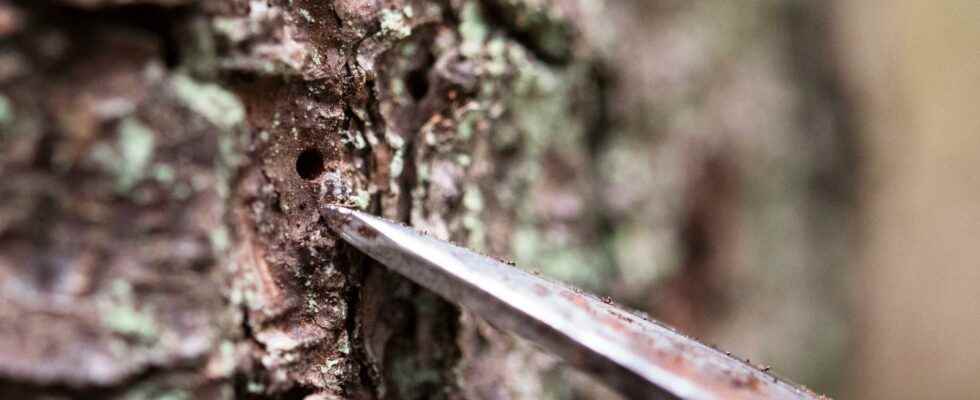Published: Just now
The hot and dry summer in southern Sweden has led to spruce bark beetles swarming for the second time this year.
A new wave of attacks on the forest is therefore underway, according to the Norwegian Forestry Agency. Landowners are encouraged to take a careful inventory of their forest.
Traps set out by the Norwegian Forestry Agency and the forest owners have in recent weeks caught this year’s second generation of spruce bark borers, which are a little brighter than the older borers.
Increased swarming has been reported from basically all counties in the southern parts of the country, according to the Norwegian Forestry Agency. At the same time, more and more new attacks are being discovered on fir trees, in the vicinity of previously infested trees.
“The recent warm and dry weather favors the insect pest,” says Mattias Sparf, an expert at the Norwegian Forestry Agency, in a press release.
Forest owners are now asked to keep an eye on their forest and remove infested trees as soon as possible.
Spruce trees felled by the wind are easy prey for the bark borers. Trees that are dry or otherwise weakened are also attacked.
How extensive the damage to the forest will be is impossible to say yet. Last year, roughly eight million cubic meters of forest were attacked by spruce bark beetles. Södermanland, Östergötland and Örebro counties were the worst employed.
The economic loss as a result of the spruce bark borer’s ravages has been calculated at several billion kroner per year, in a national perspective.
Before the hot summer of 2018, it was unusual for spruce bark beetles to reproduce with two new generations during a Swedish summer half-year.
Facts
Spruce bark borer
There are approximately 90 different species of bark beetles in Sweden.
The species that does a lot of damage is the eight-toothed spruce bark borer. It will be approximately four millimeters long.
The teeth are actually spikes, four on each side of the drill.
Wind-fallen firs are the insect’s easiest “prey”. Even living trees can be attacked, if they are dry or weakened in other ways.
The fir’s defense in the event of an attack is to try to “drown” the fir bark borers in resin. But the drillers win.
The female gnaws an approximately decimeter-long passage into the tree. There she lays eggs.
The most important measures against the bark borer are not to plant spruce on unsuitable, too dry ground, and to quickly drive the windfall or other infested trees out of the forest.
Source: The Norwegian Forestry Agency
Read more
